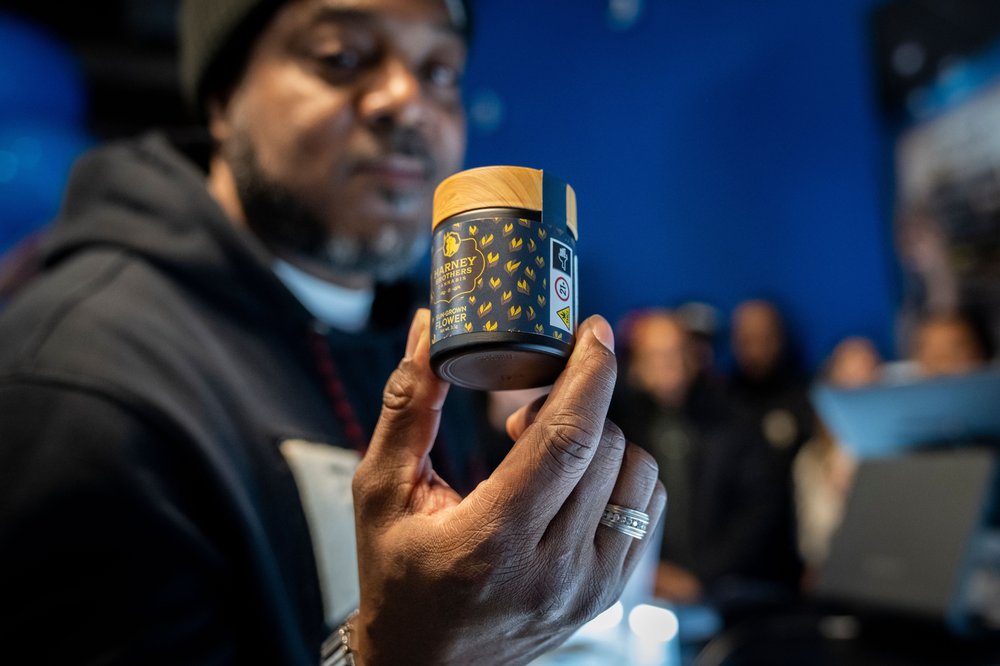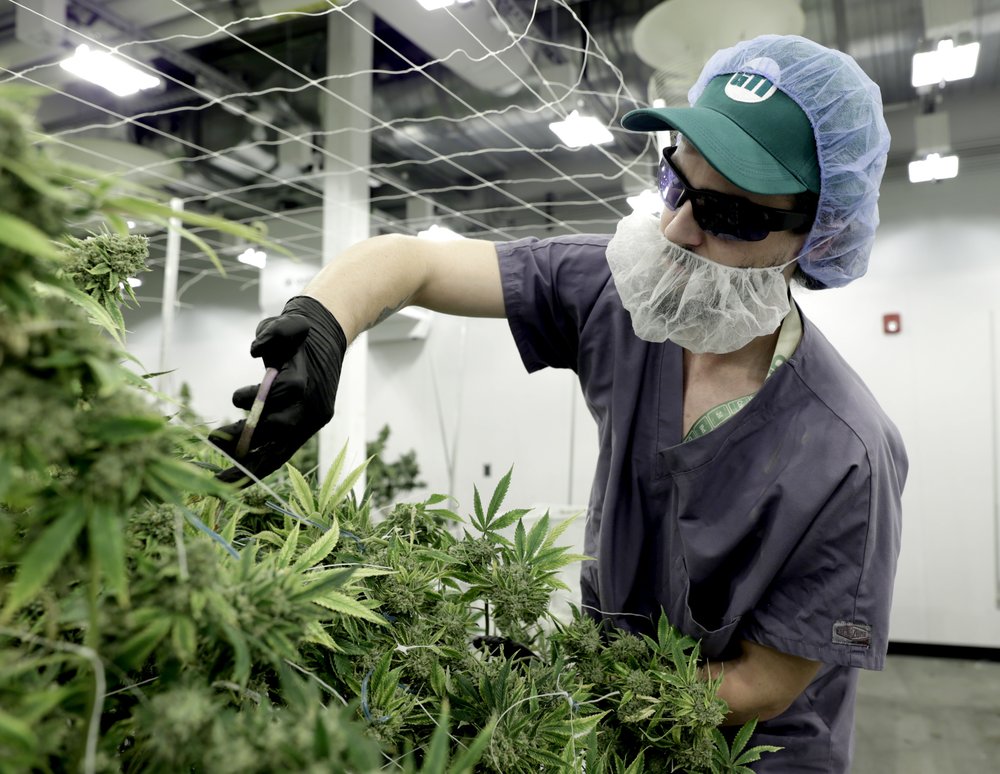Big weed operators sue NY over social equity program for retail cannabis shops
March 20, 2023, 3:20 p.m.
In recent years, the large, multi-state companies involved in the lawsuit spent millions on acquiring medical marijuana licenses under the assumption that they would be well-positioned to enter New York's broader market once it opened.

Cannabis insiders are reacting to a new lawsuit that claims New York’s social equity program for fledgling retailers is unconstitutional and is allowing the illicit market to thrive.
Some say the suit will threaten the state’s efforts to prioritize cannabis entrepreneurs who were previously affected by prohibition. But they also say state officials need to do more to ensure the legal weed industry’s success.
A group called the Coalition for Regulated & Safe Access to Cannabis filed the suit last Thursday against state cannabis officials and the Office of Cannabis Management in an Albany Supreme Court. The coalition represents large companies that are already operating in New York under medical licenses and are seeking to enter the recreational market, according to the complaint. It also represents others who want to pursue a cannabis license in New York and physicians who the suit said have suffered because of the state’s “neglect of the medical program.”
In recent years, the large, multi-state companies involved in the suit spent millions on acquiring medical marijuana licenses in New York under the assumption that they would be well-positioned to enter the broader market once it opened up. But their patience has run out.
The lawsuit was filed two weeks after state officials announced they would double the number of licenses issued to social equity applicants under the Conditional Adult Use Retail Dispensary (CAURD) program, without setting a date for opening up the application window to others.
The complaint calls New York’s equity program unconstitutional and alleges that it violates the state’s own Marijuana Regulation and Taxation Act, while allowing illicit shops to thrive. The plaintiffs are calling on the state to immediately open up licenses to the general public and take action to crack down on illegal cannabis businesses.
The lawsuit comes at a time when even industry players who support the social equity program are raising concerns about how long it’s taking to get New York’s nascent legal cannabis market up and running.
“As a grower, it's taking too long,” said Allan Gandelman, president of the Cannabis Association of New York and owner of a farm upstate that has a provisional license to cultivate marijuana.
Gandelman said he wants CAURD licensees to be first to market and worried the lawsuit was just an attempt for large companies to “take over the market.” But he also said growers expected more stores to be open by now. As New York cultivators prepare to enter their second growing season, many still haven’t sold the cannabis they grew last year, he added.

“If [the lawsuit] pushes the timeline and the state can definitively say when stores are opening and then be held accountable to that, then that's something we support,” Gandelman said.
The coalition’s lawsuit is the second legal claim calling New York’s equity program unconstitutional – a challenge that has also been brought against equity programs in other states. A company called Variscite NY One sued the state in September over the CAURD program’s residency requirements, which the lawsuit alleged violated the “dormant commerce clause” of the U.S. Constitution by discriminating against out-of-state applicants. A judge granted an injunction in that case that has so far prevented the state from issuing CAURD licenses in certain regions where that company wanted to operate, including Brooklyn.
But the new suit alleges that state cannabis officials are violating New York’s own Marijuana Regulation and Taxation Act by failing to open the initial dispensary license application period “for all applicants at the same time,” as the law indicated. The complaint also states that New York has failed to realize the goals set out in the legislation of creating a safe, legal market and generating tax revenue, among other issues. By creating the CAURD program, the suit alleges that state officials are also violating the state constitution by venturing into “legislative policymaking” that goes beyond the scope of their power.
Boris Jordan, founder and executive chairman of Curaleaf, a large, multi-state company with a medical license in New York, telegraphed that New York might face legal action before the lawsuit was filed.
“Literally, the New York authorities are almost promoting illegal cannabis and lowering testing standards for adult-use over medical, and allowing products that should never be sold in stores to be sold just so they can keep [multi-state operators] out of the market,” Jordan reportedly said in a live Twitter chat in January.
The lawsuit could force the state to open the legal cannabis market up before those in the social equity program have gotten the leg-up they were promised.
“It is a major threat to the [CAURD] program,” Lauren Rudick, an attorney representing cannabis license holders and investors in New York and New Jersey, said of the lawsuit. She noted that while the previous lawsuit challenged just one aspect of the program, this one called into question its right to exist at all.
Rudick added, however, that the state is expected to issue another batch of CAURD licenses in early April, and there was no injunction requested in the lawsuit.
“So, this next batch of licenses could conceivably go through,” Rudick said.
The state Office of Cannabis Management did not respond to a request for comment on the lawsuit. But Aaron Ghitelman, a spokesperson for the office, told Gothamist earlier this month that the state is still reviewing public comments on the general licensing regulations. Those rules must be finalized before the broader application window can open up.
Rudick said her clients would benefit from more time to get established before big players open up shop. But she also said they have faced challenges getting up and running so far.
The news outlet The City reported that the state is telling some CAURD license holders they can’t open where they want to because they’re too close to other operators. And Rudick said state rules have also limited how many different businesses private cannabis investors can work with. Meanwhile, she said, New York regulators have only made the state’s own social equity loans available to help with leasing and building out storefronts, leaving entrepreneurs to struggle with startup costs related to inventory and operations.